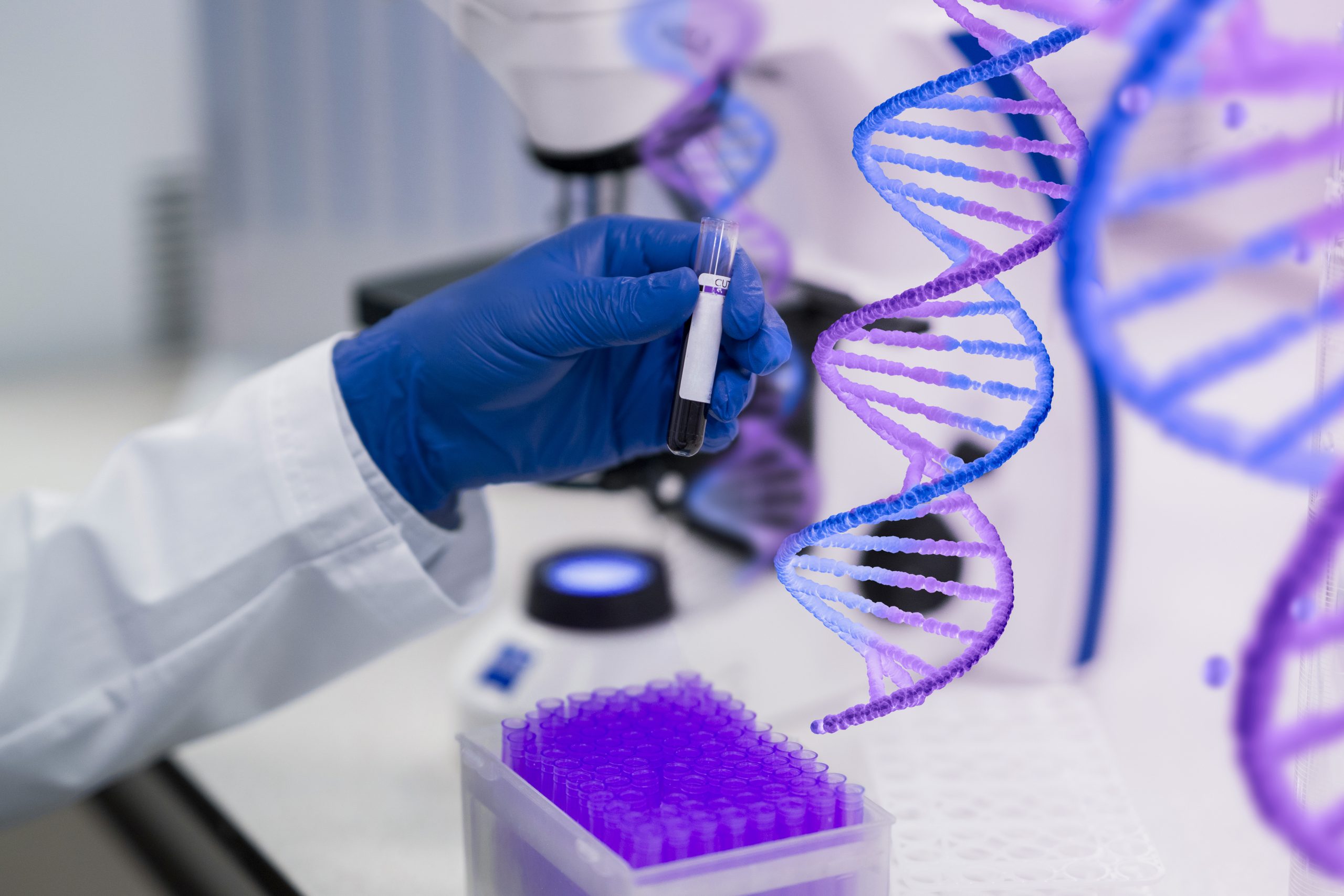

International study led by QIMR Berghofer has discovered hundreds of new genes connected to a person’s risk of getting glaucoma, including important genetic targets that could pave the door for medicines that prevent the retinal damage that causes blindness for the first time.
Nature Genetics released the findings of the largest-ever global genetic investigation of the degenerative eye condition.
The study adds 185 previously identified genes associated to glaucoma risk to an earlier 2021 study, bringing the total to 312.
Glaucoma is the biggest cause of irreversible blindness in the world, impacting over 75 million people worldwide, including 300,000 Australians. The condition causes fluid in the eye to build up and cause damage to the retina and optic nerve.
Because 50% of all glaucoma cases are not recognized until permanent optic nerve damage has occurred, early detection and treatment are critical.
Professor Stuart MacGregor, who heads QIMR Berghofer’s Statistical Genetics Laboratory and is an internationally acknowledged genetic epidemiologist, said the findings could hasten the development of a novel treatment method.
“Glaucoma robs your sight by stealth. You lose your peripheral vision first, and then one eye often covers for the loss of sight in the other. You don’t realize what’s happening until you’ve already suffered permanent damage and loss of vision,” Prof Stuart MacGregor said.
“Existing treatments focus only on lowering eye pressure. The dream has always been to find a way to make the retina itself stronger so it can withstand the build-up of pressure and prevent the damage that causes permanent blindness.
“Our findings are really exciting because for the first time we’ve discovered the set of genes that could be targeted to induce this ‘neuro-protection’ in the retinal cells.
“We’ve also identified existing drugs that could be used on those genetic targets. This could rapidly advance effective treatment to finally prevent retina and optic nerve damage.”
Because the medications have already been proven safe in humans, repurposing them has many advantages, including faster translation of research discoveries into therapy for patients.
The findings, according to lead author Associate Professor Puya Gharahkhani of QIMR Berghofer, are also assisting in the development of a genetic test to identify a person’s risk of acquiring glaucoma.
“Glaucoma is one of the most strongly genetic of all human diseases. We can use our genetic discoveries to identify those who are at higher risk.
“If we can find people before the disease develops, we can prevent blindness in those people,” A/Professor Gharahkhani said.
The researchers hope to collect more data to improve the accuracy of their genetic prediction algorithm and identify more genes associated with glaucoma risk.
More than 5,000 Australians have already agreed to participate in the QIMR Berghofer Genetics of Glaucoma study, but the researchers are looking for more.
“We’re urging Australians who have a personal or family history of the disease to sign up to the QIMR Berghofer Genetics of Glaucoma study. We particularly encourage people aged 50 to 65 who don’t have glaucoma currently but who have a close relative (parent, sibling) with the disease to sign up.
“We want to prevent glaucoma from robbing people of the ability to drive and read and recognize their loved ones, but we need your help to do this,” Professor MacGregor said.
The goal is to be able to offer the genetic test to everyone in the community in the near future. Previous glaucoma genetic studies focused on persons of European ancestry, whereas glaucoma rates are highest in people of African and Asian heritage. On an unprecedented scale, this study combined data from all over the world.
“The global nature of our data allowed us to identify a large number of glaucoma risk genes, and to also discover that most of those genes are actually shared across different ethnic ancestry groups.
“This means that genetic tests for glaucoma are likely to work well across a wide range of ancestries,” A/Professor Gharahkhani said.
Collaboration with the International Glaucoma Genetics Consortium (IGGC) was involved in the research, which aims to expand knowledge of the genes that influence glaucoma by bringing together worldwide data sets from genome-wide association studies.
The study also discovered, for the first time, correlations between glaucoma risk and diabetes, as well as immunological illnesses like multiple sclerosis.
Some of our drug discovery work suggests that certain existing treatments for other diseases, such as the diabetes drug Metformin, may have potential for use in glaucoma,” Professor MacGregor said.
more recommended stories
 Pediatric Crohn’s Disease Microbial Signature Identified
Pediatric Crohn’s Disease Microbial Signature IdentifiedKey Points at a Glance NYU.
 Nanovaccine Design Boosts Immune Attack on HPV Tumors
Nanovaccine Design Boosts Immune Attack on HPV TumorsKey Highlights Reconfiguring peptide orientation significantly.
 High-Fat Diets Cause Damage to Metabolic Health
High-Fat Diets Cause Damage to Metabolic HealthKey Points Takeaways High-fat and ketogenic.
 Acute Ischemic Stroke: New Evidence for Neuroprotection
Acute Ischemic Stroke: New Evidence for NeuroprotectionKey Highlights A Phase III clinical.
 Statins Rarely Cause Side Effects, Large Trials Show
Statins Rarely Cause Side Effects, Large Trials ShowKey Points at a Glance Large.
 Anxiety Reduction and Emotional Support on Social Media
Anxiety Reduction and Emotional Support on Social MediaKey Summary Anxiety commonly begins in.
 Liquid Biopsy Measures Epigenetic Instability in Cancer
Liquid Biopsy Measures Epigenetic Instability in CancerKey Takeaways Johns Hopkins researchers developed.
 Human Antibody Drug Response Prediction Gets an Upgrade
Human Antibody Drug Response Prediction Gets an UpgradeKey Takeaways A new humanized antibody.
 Pancreatic Cancer Research: Triple-Drug Therapy Success
Pancreatic Cancer Research: Triple-Drug Therapy SuccessKey Summary Spanish researchers report complete.
 Immune Cell Epigenome Links Genetics and Life Experience
Immune Cell Epigenome Links Genetics and Life ExperienceKey Takeaway Summary Immune cell responses.

Leave a Comment